Emotional intelligence (EI) is the ability to recognize, understand, and manage our own emotions—and the emotions of others. It plays a huge role in personal well-being, strong relationships, and overall life satisfaction.
But for many men, developing emotional intelligence isn’t easy. Society often teaches boys from a young age that “real men” are strong, stoic, and self-reliant. Vulnerability is seen as weakness. Emotions are to be controlled—or avoided.
As a result, many men struggle to connect with their emotions or express them in healthy ways. But emotional intelligence isn’t fixed—it’s a skill that can be learned, practiced, and strengthened over time. With the right guidance and practice, men can develop the skills needed to identify and communicate their emotions, process mixed feelings, and build empathy for the experiences of others. In this blog, Restoration & Wellness therapists Nicholas Wall, LPC and Danielle Roser, LPC, explore how emotional intelligence can be nurtured in men and why it’s vital for emotional well-being and healthy relationships.
Here’s how we can help men begin that journey.
1. Recognizing Emotions: Beyond Anger and Frustration
The first step in developing emotional intelligence is the ability to identify and recognize one’s own emotions. Many men, particularly those who have been raised with the belief that expressing emotions is a sign of weakness, struggle to name what they are feeling. Anger, frustration, and irritation may be recognized more easily, but subtler emotions like sadness, fear, joy, or shame can be harder to pinpoint. Danielle Roser, LPC, says, “Men often deny themselves a full range of emotions based on society’s expectations that they should be “strong.” The reality is that men, like all people, can be confused and scared and still be strong and capable, but this is not a typical image that we have for men.” Emotional intelligence starts with developing emotional awareness: learning to identify, name, and sit with emotions as they arise.
Strategies that help:
- Mindfulness: Paying attention to your body and thoughts in the moment. Paying attention to the present moment and observing your thoughts, feelings, body, and physical sensations. Mindfulness helps you become more in tune with your internal experiences, making it easier to identify emotions as they arise.
- Journaling: Reflect on your day and write about how you felt in different situations. Over time, this practice can help you recognize patterns in their emotional responses and build a vocabulary to describe a wider range of feelings. Writing about your emotional experiences each day can help uncover patterns and deeper feelings.
- Building a vocabulary: By expanding emotional vocabulary, you can learn to identify the subtleties of your emotional states, which is essential for healthy emotional processing. For example, instead of simply labeling everything as “anger,” you can start recognizing whether you are feeling frustrated, hurt, overwhelmed, or disrespected. This distinction is important for understanding how to address and regulate different emotions. Learning new emotional terms can help articulate complex inner states.
When men learn to name more than just “anger” or “stress,” they gain better control over their emotional responses—and can begin to understand what’s really going on beneath the surface. This takes time, and Danielle says that it’s best to practice with people you feel most comfortable with. Danielle adds, “Men can be more comfortable in displaying a range of emotions when they are supported in their closest relationships”
2. Expressing Emotions in Healthy Ways

Even when men know what they’re feeling, expressing those emotions is often a challenge. Society often encourages men to suppress or bottle up their feelings, leaving many unsure how to communicate them in a healthy way. This can lead to misunderstandings, emotional disconnection, and even relationship issues.
A few practical tools:
- Use “I” statements (e.g., “I feel overwhelmed when…”) instead of placing blame. For example, instead of saying, “You always ignore me,” you could say, “I feel hurt when I don’t feel heard.” This approach focuses on the speaker’s emotional experience rather than blaming or criticizing the other person.
- Acknowledge mixed emotions (e.g., feeling excited and scared about a new job). Mixed emotions, like feeling both happy and nervous about a life change, can be difficult to express, especially for someone who is not accustomed to articulating complex emotions. However, acknowledging and communicating these conflicting feelings is an important part of emotional intelligence.
- Share feelings with trusted people in safe environments—vulnerability thrives in connection, not isolation. Nicholas Wall, LPC, adds, “Talking about our feelings in general requires vulnerability and the grace provided for others to allow open dialogue.” Teaching men how to express their emotions starts with creating a safe space where they feel comfortable sharing their feelings without judgment. Open, honest communication is key.
By practicing open communication and giving themselves permission to experience and express a range of emotions, men can learn to build healthier, more authentic connections with others. It’s essential to understand that there is no “wrong” way to feel—emotions are natural, and everyone experiences them in unique ways. Learning to express emotions honestly reduces stress, improves communication, and strengthens relationships—whether romantic, familial, or professional.
3. Practicing Empathy: Understanding Others
Empathy is the ability to understand and share someone else’s emotional experience. For many men, developing empathy is a crucial component of emotional intelligence, yet it’s an area that often gets overlooked. Many men are taught to focus on their own feelings, sometimes to the exclusion of others. However, building empathy is a vital skill for emotional well-being, communication, and relationships, but men aren’t always taught how to develop it.

How to build empathy:
- Active listening: Give your full attention (no interruptions), reflect back what you hear, and validate the other person’s feelings. For example, if a friend shares that they’re feeling anxious about a big presentation, an empathetic response might be, “I hear you’re feeling nervous about this presentation, that sounds really stressful.” This response acknowledges the other person’s experience without judgment or immediate solutions.
- Ask perspective-taking questions: Put yourself in someone else’s shoes. Reflecting on how someone else might feel in a given situation can help foster understanding. For example, asking questions like, “How would I feel if I were in their position?” or “What might this person need right now?” helps men move beyond their own perspective and consider the emotional experience of others.
- Focus on connection over fixing—people often need to be heard more than helped. Empathy is especially important in close relationships. It enables you to support your partners, friends, and family members more effectively.
“Perspective taking is the foundation of building empathy. This can be the first logical step in understanding how others may be feeling,” Nicholas Wall, LPC, emphasizes. Empathy creates emotional closeness and builds trust, allowing deeper, more fulfilling connections with others. By understanding the emotions of others, men can respond with compassion, kindness, and sensitivity, which strengthens relationships and promotes emotional closeness.
Why It Matters for Men

Emotional intelligence offers numerous benefits to men in both their personal and professional lives. Emotional intelligence helps men become better partners, parents, leaders, and friends. It supports mental health, reduces anxiety, and builds resilience. And it allows men to step outside rigid roles and express their full humanity. “A strong leader requires a level of emotional intelligence to build others up and understand how others may react to certain situations” Nick shares.
Developing emotional intelligence enables men to challenge harmful stereotypes about masculinity—the idea that men must be stoic, self-contained, or emotionally numb to be strong. True strength lies in vulnerability, self-awareness, and the courage to connect. By embracing emotional intelligence, men can create a more balanced and authentic sense of self. They can break free from the confines of rigid gender roles and allow themselves to be fully human—expressing vulnerability, building deep connections, and cultivating a sense of emotional fulfillment.
A New Model of Masculinity
To support men in building emotional intelligence, we must create space—for honest conversations, emotional learning, and support systems that encourage vulnerability. Whether it’s through therapy, friendships, or role models, helping men grow emotionally benefits everyone. Nicholas Wall, LPC, reminds us that “just like any form of intelligence, it takes time and effort to improve.”

When men learn to feel, express, and empathize, they don’t just become more emotionally healthy—they help redefine what it means to be a man. As we continue to shift cultural norms around masculinity, emotional intelligence will be a key skill for men to develop in order to experience greater emotional well-being and contribute to stronger, more compassionate relationships.
Contributing Therapists:

Nicholas Wall, LPC
Areas of Expertise Include:
Men’s issues, Adults and Adolescents – trauma, anxiety, depression, executive function disorders and grief
“Through openness, humor, and warmth, I aim to foster a supportive, trusting, and safe environment for clients to explore solutions.”

Danielle Roser, LPC
Areas of Expertise Include:
Adults and Adolescents – trauma-focused treatment, anxiety-based disorders, depression, eating disorders, and grief
“I approach therapy form a wholistic perspective and believe an eclectic approach is best to fit the individual person’s needs. I have seen the difference addressing childhood trauma can make in reaching therapeutic goals.”

Explore how Restoration & Wellness therapists can support your journey to mental well-being.
We offer free consultations so you can find the right therapist for you.
Schedule a Visit
- What Therapists Recommend When World News Feels Too Heavy
- “Triggered”: What it Really Means and Why it Matters
- What is OCD? It’s More Than Being “Neat”: Understanding the Reality Behind the Label
- Do I Have ADHD? How to Separate Facts from Social Media Myths
- Building Stronger Bonds: A Guide for Men to Cultivate Healthier Relationships
Fort Washington Location
223 Summit Avenue
Fort Washington, PA 19034
United States
Royersford Location
830 Chestnut Street
Royersford, PA 19468
United States
Proudly powered by WordPress






